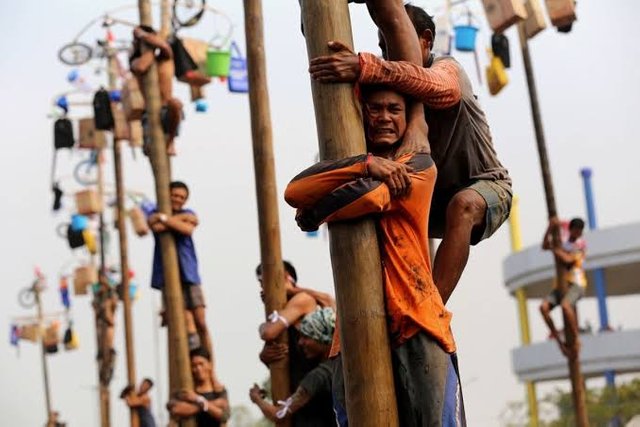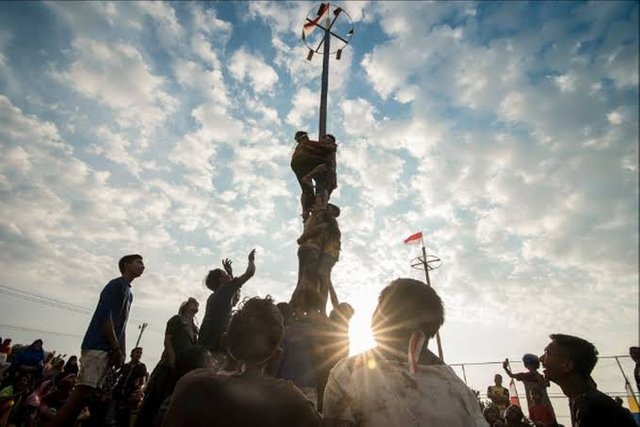Repost || Uncovering the Origins and Meaning of the Grecian Tree Climbing Competition
The pole climbing competition is one of the favorite competitions during Indonesian Independence Day celebrations. Beyond its excitement, this competition has a long history and profound meaning.
According to the book "Past Entertainment and Local Traditions" by Fandy Hutari, pole climbing originates from Chinese culture. This game is known as Qiang Gu and has been around since the Ming Dynasty.
Originally, panjat pinang (climbing the pole) was associated with the Ghost Festival. In Indonesia, panjat pinang (climbing the pole) became popular during the Dutch colonial period around 1930.
At that time, this competition served as entertainment for the colonials at parties. Prizes included luxurious foods such as cheese and sugar, as well as clothing, which was highly valued by the native people.
During the colonial period, panjat pinang (climbing the pole) was performed by the native people as a spectacle for the colonizers. The Dutch watched with laughter as the natives struggled to climb the slippery poles.
Some indigenous families with close ties to the colonial government also held this competition at their celebrations. Over time, the pole climbing evolved into a symbol of struggle and togetherness.
This competition teaches the importance of cooperation and mutual support to achieve goals. The prize at the top of the pole symbolizes the independence that must be achieved together.
Once won, the prize was divided equally as a symbol of fairness. Today, pole climbing has become both a form of entertainment and a cultural heritage that teaches solidarity and fighting spirit.


